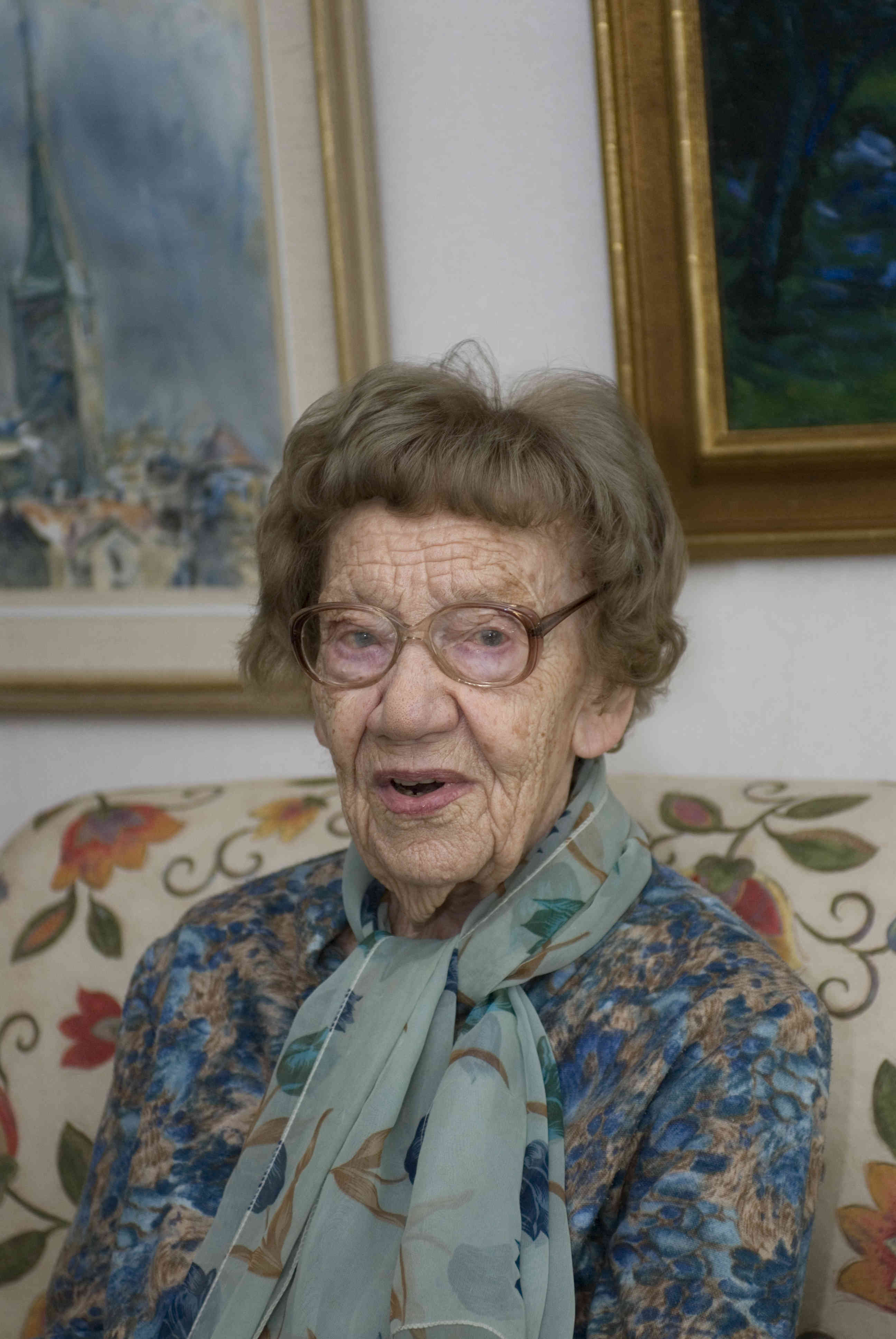
Liidia Tuulse
Liidia Tuulse (born Liidia Haas, 8. III 1912 – 17. III 2012) was a poet residing in Sweden, who together with her art historian husband Armin Tuulse was one of the most important carriers and keepers of Estonian cultural memory in exile.
Liidia Tuulse was born in Soe village, Hummuli parish, Viljandi county (later part of Valga county). From 1918-1929, she studied in Veister private primary school in Valga and in the humanities branch of the Valga Girls’ Gymnasium. From 1918-1929, she studied Germanic languages, philosophy, and art history in the University of Tartu, graduating cum laude. In 1938, she defended her master’s thesis entitled Eksperimentaalne uurimus eelkooliealiste laste musikaalsusest (‘An Experimental Study on the Musical Talent of Preschool Children’). She later continued her studies at the universities of Königsberg and Stockholm.
In 1944, together with husband Armin Tuulse and son Tanel, she fled to Sweden. In Sweden, she first worked as an archivist (1950-1962) in the editor’s office of the book series Sveriges Kyrkor (Swedish Churches), later as a German teacher. Her son Toomas Tuulse is an architect, composer, and the conductor of the Estonian Choir in Stockholm.
Liidia Tuulse debuted by publishing travelogues, reviews, and short prose in journals in the late 1930s. She started writing poetry later in her life, at nearly 50 years old, inspired to do so chiefly by Bernard Kangro. Marie Under was also supportive of Tuulse’s accomplishments. Her first poems were published in the magazine Tulimuld in 1961. Tuulse’s first poetry collection Liiv ja lumi (‘Sand and Snow’, 1968) is thematically coherent. It features sensitively written mood portrayals of mostly nature, flowers, landscapes. The poems often end with unexpected turns of thought. Writing about nature remained characteristic to her poetry. In her second collection Linde pihlaka võras (‘Birds in the Rowan’s Crown’, 1983) another person is added to the forefront: perpetually repeating miscommunications, dismissals, and small disappointments, which become fatefully significant, hidden moments of joy. An important part of Tuulse’s writing are her impressions of vacations in Western Europe, and finally being reunited with the nature of her home country. For Tuulse, impressions of the nature of Finland, Sweden and Norway conjure up images of her youth in Estonia. Tuulse’s first two poetry collections, that were published in Sweden, were designed by Arno Vihalemm. The other four were published in Tallinn.
Tuulse’s poems are mostly written in free verse, end rhymes are rarely used. Translations of her poems have been published in German, Swedish, and English.
Tuulse has also translated poetry herself, mainly from German and Swedish, most of which were published in the magazine Tulimuld. Tuulse has translated the poetry of the following authors: Gottfried Benn, Bo Bergman, Magda Bergquist von Mirbach, Karin Boye, Gunnar Ekelöf, Hermann Hesse, Mare Kandre, Erik Lindegren, Octavio Paz, Rainer Maria Rilke, and Anders Österling. Out of the aforementioned, Rilke’s poetry had the strongest influence on Tuulse. Tuulse has given several lectures in Estonian and German on Estonian literature (namely on Lydia Koidula, Marie Under, and Betti Alver) in Sweden, Germany, the USA, Canada, and Switzerland.
In 1968, Liidia Tuulse became a member the Estonian Writers’ Union Abroad and the Academic Women’s Society, the latter of which she also chaired from 1983; she was a member of the Estonian Scientific Society in Sweden, Estonian Cultural Society of Sweden, the Swedish Estonian Union, and from 1978, the Estonian PEN Club.
L. P. (Translated by A. A.)
Books in Estonian
Poems
Liiv ja lumi. Lund: Eesti Kirjanike Kooperatiiv, 1968. 80 lk.
Linde pihlaka võras: luuletusi 1963–1983. Lund: Eesti Kirjanike Kooperatiiv, 1983. 80 lk.
Tiivalöök: luulet, 1963–1983. Tallinn: Eesti Raamat, 1989. 69 lk.
Jahresringe: Gedichte= Arsringar: dikter= Annual rings: poems. Tallinn: Inreko Press, 1995. 73 lk. [Osa teksti eesti keeles.]
Muutuda sõnaks. Tallinn: L. Tuulse, 1997. 159 lk.
Kogutud luuletused 1969–1997. Tallinn: Eesti Keele Sihtasutus, 2007. 363 lk.



